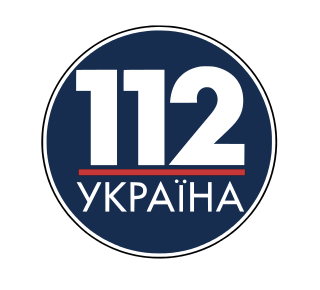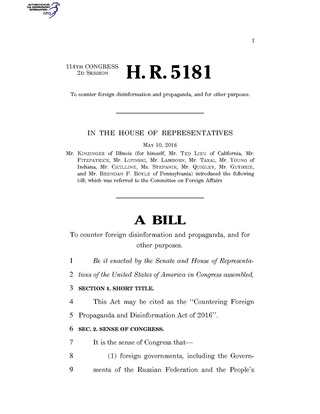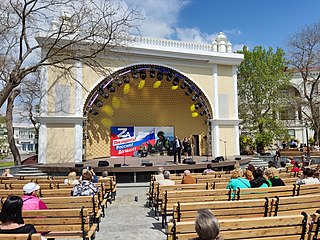Related Research Articles

Russia–European Union relations are the international relations between the European Union (EU) and Russia. Russia borders five EU member states: Estonia, Finland, Latvia, Lithuania and Poland; the Russian exclave of Kaliningrad is surrounded by EU members. Until the radical breakdown of relations following the 2022 Russian invasion of Ukraine, the EU was Russia's largest trading partner and Russia had a significant role in the European energy sector. Due to the 2022 Russian invasion of Ukraine, relations became very tense after the European Union imposed sanctions against Russia. Russia placed all member states of the European Union on a list of "unfriendly countries", along with Taiwan, South Korea, Japan, Singapore, the United States, NATO members, Canada, Australia, New Zealand, Norway, Switzerland, Micronesia and Ukraine.
RIA Novosti, sometimes referred to as RIAN (РИАН) or RIA (РИА), is a Russian state-owned domestic news agency. On 9 December 2013 by a decree of Vladimir Putin it was liquidated and its assets and workforce were transferred to the newly created Rossiya Segodnya agency. On 8 April 2014, RIA Novosti was registered as part of the new agency.

RT is a Russian state-controlled international news television network funded by the Russian government. It operates pay television and free-to-air channels directed to audiences outside of Russia, as well as providing Internet content in Russian, English, Spanish, French, German and Arabic.
Asian News International (ANI) is an Indian news agency that offers syndicated multimedia news feed to news bureaus in India and elsewhere. Established by Prem Prakash in 1971, it was the first agency in India to syndicate video news and as of 2019, is the biggest television news agency in India.

The All-Russia State Television and Radio Broadcasting Company or Russian Television and Radio Broadcasting Company, also known as Russian Television and Radio, is a national state-owned broadcaster which operates many television and radio channels in 53 of Russia's languages. The company was founded in 1990 and is based in Moscow.
inoSMI is an internet media project that monitors and translates articles published in foreign and Western media into Russian, and is part of the state media group Russia Today.

Sputnik is a Russian state-owned news agency and radio broadcast service. It was established by the Russian government-owned news agency Rossiya Segodnya on 10 November 2014. With headquarters in Moscow, Sputnik maintains regional editorial offices in Washington, D.C., Cairo, Beijing, Paris, Berlin, Madrid, Montevideo and Rio de Janeiro. Sputnik describes itself as being focused on global politics and economics and aims for an international audience.
New Eastern Outlook (NEO) is an internet journal published by the Institute of Oriental Studies of the Russian Academy of Sciences. According to its website, this journal looks at world events "as they relate to the Orient." According to a 2020 report from the US State Department, NEO is "a pseudo-academic publication ... that promotes disinformation and propaganda focused primarily on the Middle East, Asia, and Africa." According to the United States Department of the Treasury, NEO is run by SVR, Russia's foreign intelligence agency. NEO is included in the EUvsDisinfo project, which tracks online disinformation.

The propaganda of the Russian Federation promotes views, perceptions or agendas of the government. The media include state-run outlets and online technologies, and may involve using "Soviet-style 'active measures' as an element of modern Russian 'political warfare'". Notably, contemporary Russian propaganda promotes the cult of personality of Vladimir Putin and positive views of Soviet history. Russia has established a number of organizations, such as the Presidential Commission of the Russian Federation to Counter Attempts to Falsify History to the Detriment of Russia's Interests, the Russian web brigades, and others that engage in political propaganda to promote the views of the Russian government.

112 Ukraine was a private Ukrainian TV channel which provided 24-hour news coverage. 112 Ukraine was available on satellites AMOS 2/3, via the DVB-T2 network, and was also available in packages of all major Ukrainian cable operators until it was banned from broadcasting in Ukraine in February 2021. The channel was focused on live broadcasting.
Fake news websites are websites on the Internet that deliberately publish fake news—hoaxes, propaganda, and disinformation purporting to be real news—often using social media to drive web traffic and amplify their effect. Unlike news satire, fake news websites deliberately seek to be perceived as legitimate and taken at face value, often for financial or political gain. Such sites have promoted political falsehoods in India, Germany, Indonesia and the Philippines, Sweden, Mexico, Myanmar, and the United States. Many sites originate in, or are promoted by, Russia, North Macedonia, and Romania, among others. Some media analysts have seen them as a threat to democracy. In 2016, the European Parliament's Committee on Foreign Affairs passed a resolution warning that the Russian government was using "pseudo-news agencies" and Internet trolls as disinformation propaganda to weaken confidence in democratic values.

Countering Foreign Propaganda and Disinformation Act is a bipartisan bill that was introduced by the United States Congress on 10 May 2016. The bill was initially called the Countering Information Warfare Act.

The Russian information war against Ukraine was articulated by Russian government as a part of Gerasimov doctrine. They believed that Western governments were instigating color revolutions in former Soviet states which posed a threat to Russia.

As part of the Russian invasion of Ukraine, the Russian state and state-controlled media have spread disinformation in an information war. Much of the news about military propaganda during Russia's invasion of Ukraine focused on Russian disinformation. Ukrainian media and politicians have also been accused of using propaganda and deception, although such efforts have been compared to the Russian disinformation campaign as more limited. Both Russia and Ukraine exaggerate the losses they claim to have inflicted on each other.
Russian disinformation campaigns have occurred in many countries. For example, disinformation campaigns led by Yevgeny Prigozhin have been reported in several African countries. Russia, however, denies that it uses disinformation to influence public opinion.

NewsFront is a website based in Russian occupied Crimea. It describes itself as "a news agency that runs news in ten languages including Russian, German, English, Bulgarian, Georgian, French, and Spanish." In 2021, the United States Department of the Treasury described it as "a Crimea-based disinformation and propaganda outlet...particularly focused on supporting Russia-backed forces in Ukraine." According to owner Konstantin Knyrik, however, NewsFront is fighting an "information war" against unfair attacks on Russia.

SouthFront is a multilingual website registered in Russia and based in Crimea. It has been accused by multiple sources of being an outlet for disinformation and propaganda under the control of the Russian government. For this reason, it has been sanctioned by the US Treasury and banned by social media platforms.
Oriental Review (OR) is an online magazine that describes itself as "an international e-journal focusing on current political issues in Eurasia and beyond". It was founded in 2010. Despite its claims of editorial independence, the website has been described as under the control of Russia's Foreign Intelligence Service (SVR).
Doppelganger is the name given for a Russian disinformation campaign established in 2022. It targets Ukraine, Germany, France and the United States, with the aim of undermining support for Ukraine in Russia's invasion of the country.
References
- 1 2 Jozwiak, Rikard (25 June 2015). "EU to counter Russian propaganda by promoting 'European values'". The Guardian . Archived from the original on 8 November 2020. Retrieved 28 November 2015.
- ↑ Jozwiak, Rikard (24 June 2015). "EU Plans To Step Up Fight Against Russian Propaganda". Radio Free Europe/Radio Liberty . Archived from the original on 9 November 2020. Retrieved 20 November 2020.
- 1 2 "Action Plan on Strategic Communication" (PDF). Eastern Partnership Civil Society Forum. 22 June 2015. p. 5. Archived from the original (PDF) on 23 November 2016. Retrieved 28 November 2015.
- ↑ Serrato, Raymond; Wallis, Jacob (1 October 2020). "Covid-19 Disinformation and Social Media Manipulation: Covid-19 and the Reach of Pro-Kremlin Messaging". Homeland Security Digital Library. Retrieved 16 December 2020– via Australian Strategic Policy Institute.
- ↑ European Council (20 March 2015). "European Council meeting (19 and 20 March 2015) - Conclusions" (PDF). Brussels. Paragraph 13. Retrieved 28 November 2015.
- ↑ Karásek, Tomáš (2018). "Modes of Strategic Adaptation". Obrana a Strategie. 18 (2): 53. doi: 10.3849/1802-7199.18.2018.02.043-056 . ISSN 1214-6463. S2CID 150893060.
- ↑ "Questions and Answers about the East StratCom Task Force - EEAS - European External Action Service - European Commission". EEAS - European External Action Service. Retrieved 19 March 2018.
- 1 2 Hansen F (1 January 2017). "Cognitive Reslience, from Russian Hybrid Warfare: A study of disinformation". Danish Institute for International Studies. Retrieved 17 December 2020.
- 1 2 3 "Questions and Answers about the East StratCom Task Force". EEAS - European External Action Service. Material has been copied from this source. Reuse is authorised, provided the source is acknowledged.
- ↑ "Eastern Partnership summit, 24/11/2017 - EEAS - European External Action Service - European Commission". EEAS - European External Action Service. Retrieved 19 March 2018.
- ↑ Zakirova, Svitlana. "Роль Мiжнародних Организацiй У Постконфлiктному Миробудiвництвi: Комунiкацiйний Вимiр" [The Role Of International Organizations In Post-Conflict Peacebuilding: The Communication Dimension](PDF). Social Communications Research Center (in Ukrainian). p. 331. Archived from the original (PDF) on 31 March 2022. Retrieved 16 December 2020.
- 1 2 3 4 Birnbaum M (25 April 2018). "Europe wants to crack down on fake news. But one person's fake news is another's democratic dissent". The Washington Post. Retrieved 6 May 2020.
- ↑ Echols, William (11 December 2020). "No Evidence Russia Spread COVID-19 Disinfo? Think Again". Polygraph.info . Retrieved 16 December 2020.
- ↑ "GEC Special Report: Pillars of Russia's Disinformation and Propaganda Ecosystem" (PDF). United States Department of State . 2020.
- ↑ Volkova, Svitlana; Jang, Jin Yea (2018). "Misleading or Falsification". Companion of the Web Conference 2018 on the Web Conference 2018 - WWW '18. WWW '18. Lyon, France: ACM Press. p. 577. doi: 10.1145/3184558.3188728 . ISBN 978-1-4503-5640-4. S2CID 13806087.
- ↑ Crișan, Magdalena (2019). "Migration In The Kremlin's Disinformation War". Bulletin of "Carol I" National Defence University (3): 8. ISSN 2284-936X – via Central and Eastern European Online Library.
- ↑ "Database". EUvsDisinfo. 7 March 2024. Archived from the original on 7 March 2024. Retrieved 7 March 2024.
- ↑ "Database". EUvsDisinfo. 7 March 2024. Archived from the original on 7 March 2024. Retrieved 7 March 2024.
- ↑ Rankin, Jennifer (25 November 2017). "EU anti-propaganda unit gets €1m a year to counter Russian fake news". the Guardian. Retrieved 19 March 2018.
- ↑ "Pavel Telička píše F. Mogheriniové. Oceňuje práci East StratCom Task Force" [Pavel Telička writes to F. Mogherini. He commends the work of the East StratCom Task Force]. telicka.eu (in Czech). 2 February 2017. Archived from the original on 31 March 2022. Retrieved 19 March 2018.
- ↑ "Register of Commission expert groups and other similar entities". ec.europa.eu. Retrieved 19 March 2018.
- ↑ "MEPs call for boosting EU resilience to Russian propaganda". New Europe. 18 January 2018. Archived from the original on 11 January 2021. Retrieved 19 March 2018.
- 1 2 "Plenary video: Russia - the influence of propaganda on EU countries | Multimedia centre | European Parliament". Multimedia centre | European Parliament. Retrieved 19 March 2018.
- ↑ Skovgaard, Morten (30 January 2017). "Truslen fra øst eller: Hvordan jeg holdt op med at bekymre mig og lærte at elske sandheden - POV". POV (in Danish). Retrieved 19 March 2018.
- ↑ Sobotka, Bohuslav (18 May 2017). "Premiér Bohuslav Sobotka se zúčastnil Stratcom Summitu 2017" [Prime Minister Bohuslav Sobotka attended the Stratcom Summit 2017]. Government of the Czech Republic (in Czech). Retrieved 19 March 2018.
- ↑ Lecture by Edward Lucas , retrieved 19 March 2018
- ↑ Scott, Mark; Eddy, Melissa (20 February 2017). "Europe Combats a New Foe of Political Stability: Fake News". The New York Times. ISSN 0362-4331 . Retrieved 19 March 2018.
- ↑ "How Russia's attack on Freeland got traction in Canada - Macleans.ca". Macleans.ca. 14 March 2017. Retrieved 19 March 2018.
- ↑ "Mogherini urged to do more on Russian propaganda" . Retrieved 19 March 2018.
- ↑ "[Opinion] No joke: Russian propaganda poses EU threat" . Retrieved 19 March 2018.
- ↑ "The European Union Steps Up its Fight Against Fake News". Lawfare . 14 November 2017. Retrieved 19 March 2018.
- ↑ Apuzzo M (30 April 2020). "Top E.U. Diplomat Says Disinformation Report Was Not Watered Down for China". The New York Times. Retrieved 6 May 2020.
- ↑ "Avdiivka". EU vs DISINFORMATION. 9 February 2017. Retrieved 14 December 2020.
- ↑ "EU er fanget i propaganda-krigens tåger". Politiken. 27 February 2017. Retrieved 28 February 2018.
- ↑ Peel M, Khan M (2 April 2018). "EU attack on pro-Kremlin 'fake news' takes a hit". ft.com. Retrieved 6 May 2020.
- ↑ "Court subpoena in English" (PDF). Kenny Van der Laan lawfirm. 19 February 2018. Archived from the original (PDF) on 28 February 2018. Retrieved 28 February 2018.
- ↑ "Dutch media outlets take EU to court over disinformation claims". Dutch News. 21 February 2018. Retrieved 28 February 2018.
- ↑ "Three publications are suing the EU over fake news allegations". Poynter. 28 February 2018. Retrieved 1 March 2018.
- ↑ "Gewijzigde motie van de leden Kwint en Yesilgöz-Zegerius over het opheffen van EU versus Disinfo (t.v.v. 21501-34-286) (Proposal to close East StratCom)". Tweede Kamer. 6 March 2018. Retrieved 12 March 2018.
- ↑ "Removal of three cases further to complaints by Dutch media". EU vs Disinformation. 8 March 2018. Retrieved 12 March 2018.
- ↑ "Kabinet trotseert Kamer over nepnieuwswaakhond (Cabinet defies Chamber about fake news watchdog)". Reformatorisch Dagblad. 6 March 2018. Retrieved 12 March 2018.
- ↑ "Ook Ollongren wil nu af van Europese waakhond nepnieuws (Ollongren now also wants to get rid of European watchdog fake news)". NOS. 10 March 2018. Retrieved 12 March 2018.
- ↑ "Minister Kajsa Ollongren nu toch tegen anti-nepnieuwsbureau (Minister Kajsa Ollongren now against anti-fake news agency)". The Post Online (TPO). 9 March 2018. Retrieved 12 March 2018.
- ↑ Hins, Wouter (2018). "EU vs Disinfo". Mediaforum. ISSN 0924-5057 . Retrieved 16 December 2020.
- ↑ "Media trekken kort geding tegen EU om nepnieuws in" [Media take summary proceedings against the EU for fake news]. NOS Journaal (in Dutch). 13 March 2018. Retrieved 19 March 2018.